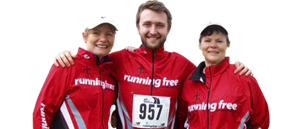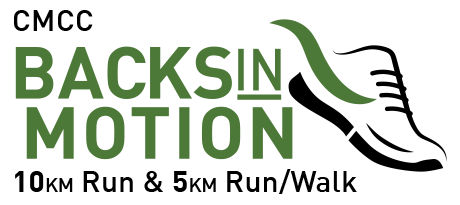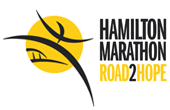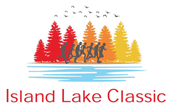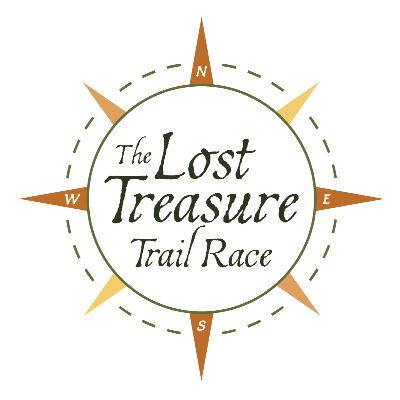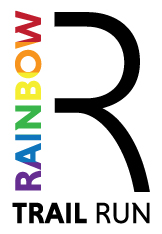Having just returned from the ITU Triathlon World Championships in Switzerland, I thought I would share some tips on travelling overseas for triathlon races (some of these I learned the hard way). I travelled with my daughter, who also qualified, so we had the extra challenge of travelling with 2 bikes (see more below).
Pre-trip research: Before you travel, make sure you find out the local currency and the type of plugs they use. I assumed Switzerland would use Euros, but they use CHF (Swiss francs), so I had to convert my euros back to Canadian dollars, then to CHF, so I lost double on the exchange. My bank teller told me to use my US dollar credit card as much as possible to save 5-8 cents per dollar on the exchange. I found out Switzerland uses both C and J plugs, so I had to contact the hotel to ask. They used the very rare J plugs, but provided each room with a single “European” adapter, so we borrowed our neighbour’s C adapter (with 3 inputs), and plugged that into the hotel adapter, which then went into the wall. We saved $20 by not buying the adapter ourselves. We took a risk and didn’t buy the converter (probably needed for hairdryers, but my ipad and camera were fine). I was worried about my Garmin watch, but I was able to charge it through the USB port in the lobby computer while I read my book.
Air travel: Book your plane tickets as soon as possible to avoid disappointment. I assume the rates go up as the dates get closer, but this may not actually be the case. I did not buy the optional travel insurance, so our tickets were non-refundable, which made me a bit nervous, but I figured that if one of us got injured, we could still go watch and do some sight seeing. We booked tickets with Air Canada and Swiss Air (partners?) from Toronto to Zurich and then onto Geneva. My advice is to get as close to your destination as you can on the overseas flight (we figured if there was a flight delay in Toronto, that we could easily find another flight from Zurich to Geneva). If you book the flights together, the luggage (and bikes!) will be checked straight through to the final destination. Knowing we would have a bike case each, I paid the optional baggage fee, which the site claimed to be cheaper than the luggage rate at the airport. I don’t know if that was true, but I paid for 1 bag each which I think worked out to $100 for the return trip. I looked up various ways to get the bikes to Switzerland, including: shipping the bikes as parcels ($750 each way), paying the affiliated company to pack and bring them ($500 each way), or bringing them on the plane ourselves ($50 bike handling fee). The Air Canada staff at the Toronto airport also charged me an additional $100 for my suitcase, which was a bit steeper than I expected (so a total of $200 CAD to get our 2 bike cases and 1 suitcase from Toronto to Switzerland, on top of the extra baggage fee I had already prepaid when I booked). Flying back from Geneva, the Swiss air staff were much less accepting of our bikes, and asked if I called the airline in advance to ensure they could take our bikes (I hadn’t). She told me that if they couldn’t take them, we would have to leave them behind! Eventually she found room, and we had to pay $230 Swiss Francs for the 2 bike cases and a suitcase, which was a bit more than we paid in Toronto, but considering I was at their mercy, it could have been worse! We had to wait almost an hour to get our bikes on the special carousel in Geneva (I was sitting at the lost luggage desk making arrangements for next-day delivery when Kathryn pulled them up to the office). They came off about the same time as the suitcase in Toronto, so that wait was much less stressful.
Hotel: Book your hotel as early as possible for the best rate. I used a booking website which offered free cancellation, and took advantage of that option when a week later I found a MUCH cheaper alternative just outside Lausanne, where the race would be. I think the first hotel in Lausanne was $450/night for 6 nights, but I ended up booking one in Ecublens for $150/night. Total savings: $1800!
Transportation: We did not rent a car, which was a huge savings! Most (if not all) hotels in the area (maybe all of Europe) offered free transit vouchers (but you have to get the hotel reception staff to print one out for each guest). It allowed us to take busses, trains, and subways all through the Lausanne and Ecublens areas. We used transit a lot (4 trips a day, on average). We looked up various transit options to get around, and we were so impressed with the frequency of the busses, and how they used common stops so you could get almost anywhere with just 1 or 2 transfers and very little walking. We enjoyed walking around too, but we didn’t have a phone with data, so we tried to plan our trips ahead of time as much as possible. The few times we couldn’t find our way around, we were helped out by very friendly people who were happy to help. Note: it really helps to speak the local language, and my daughter and I spoke quite a bit of French while we were there (our French Immersion courses helped greatly!). We were never asked to show our travel vouchers, but there was a steep fine if you were caught without one. Apparently there was an additional fine if you brought your bikes on transit vehicles without paying for a half-fare ticket ahead of time (but when we needed to travel locally with our bikes, we just rode them to where we needed to go).
Meals: We made sure to rent a hotel with a small fridge in the room. I have paid extra for a hotel with a kitchen, but we didn’t cook our meals, so that wasn’t worth the extra money for us. However, having a fridge meant we could put carrots, fruits, milk, salad, etc. in the fridge. We also brought cereal, peanut butter and a plastic knife with us (not knowing what options we would have in Switzerland), then bought buns, croissants, and muffins, so we were all set for breakfasts and lunches. We ate at relatively inexpensive restaurants, and tried to avoid buying drinks (but we did splurge a couple of times). We asked for water, and one restaurant charged us 8.90 CHF for a 1 L bottle which was the only expense that had me shaking my head. We had gelato or a milkshake as a snack when we were out sightseeing to get our calcium and a yummy treat! Ecublens turned into a ghost town on Sunday (which might be throughout Europe) and the only open restaurant we could find was a McDonald’s – not what we wanted, but we needed to eat after our race!
Bike Cases: As mentioned above, we needed 2 bike cases to bring our bikes to Switzerland. I borrowed one from a friend, and paid $50 to a local bike store to rent another for a week. We had to learn how to disassemble and reassemble our bikes, and make sure we had the proper tools. I watched 4 Youtube videos (because road bikes and TT bikes with Di2 are different). My husband rigged up an extender to a wrench so I could get the extra torque to remove the pedals (although it was only hard to remove them the first time). He also had to help with a few really tight bolts, but once I had tightened them to a more reasonable tightness, I was able to do all of this mechanical work without his help (my daughter held my bike while I took it apart, and then I held her bike while she took her bike apart). After a few tries, we got pretty good at removing the pedals, wheels, seat post, and handlebar stem. We tried to leave the rear derailleur alone, but it jutted out more than we wanted, so we had to remove that too. Putting that back on was probably the most nerve-wracking part of the entire process, but we did it successfully, and our bikes did not fall apart during our race! We were reminded to leave the CO2 cartridges at home (not allowed on the plane), but bought cartridges at a local bike store when we arrived (and gave them away before we left). We wrapped everything in packing foam or pipe foam, covered layers with the foam (provided in the case), added a pump which I was happy to have, then buckled the case straps tightly. We had to open the cases in the Toronto airport since the cases were too wide to fit through the x-ray machine, but we didn’t have to open the case in Geneva before our return flight – they fit through the x-ray machine there. Lugging the cases with us was hard work, especially with the extra suitcase, even though they all had wheels (I wouldn’t EVER try this without a case with wheels). We took turns with the suitcase, since having both a bike case and a suitcase was much harder than just the bike case. We were able to take a bus to our hotel doorstop, but our flight was so early Monday morning that the busses weren’t running. We tried to find a taxi, but none of the 4 we called could handle the bike cases, so we decided to walk to the train station. The 1.3 km walk at 3:30 am the day after a tough race was more difficult than the race itself. It took us over 30 minutes, and we almost missed our train (which would have meant missing our flight). The train was pulling into the platform as we were stepping out of the elevator, and left 30 seconds after we loaded ourselves into the train. We were both dripping with sweat, and happy to sit and rest for the 50 minute train ride to the airport!
I would seriously consider renting a bike next time, but it was nice having our bikes with us. I am definitely not in a hurry to do anything similar in the near future, if I ever do it again. Driving to local races is much much easier!

